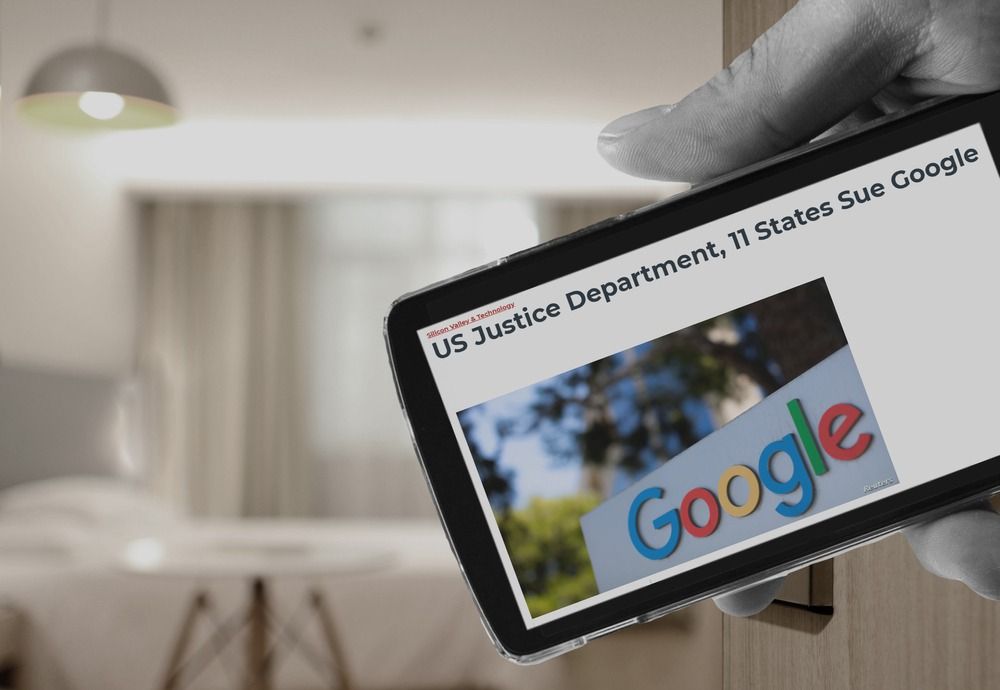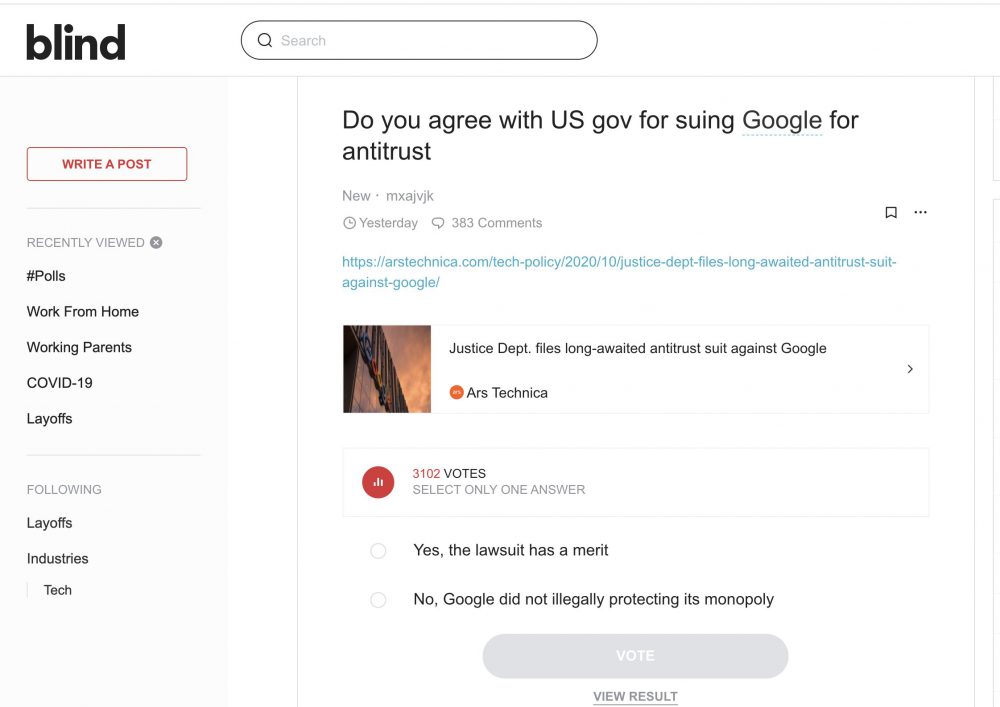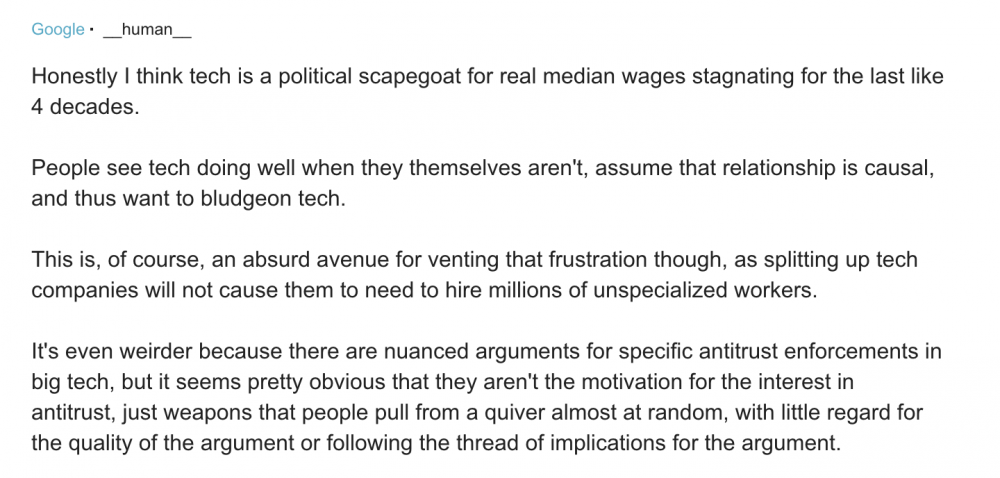87% Of Polled Google Professionals Do Not Believe Google Illegally Protected Its Monopoly

Yesterday, the Department Of Justice says Google has abused its market power and has stifled competition. Google has been accused of holding an illegal monopoly over internet search and search advertising.
The U.S. government hasn’t brought an antitrust case of this size since Microsoft in 1998. In the late 1990s, the economy was performing better than it has been lately. Back then, incomes and net worth were rising up and down the economic spectrum. In recent years, the gains have slowed or stopped for every group but the very rich.
State officials are investigating Google as well, and both federal and state officials are also scrutinizing Facebook, Amazon and some other large companies. Although it is not illegal to be a monopoly in the U.S.it is illegal to use market dominance to box out rivals.
The common concern is that large companies have become so powerful that they’re bad for the country. They have the power to influence government policy through lobbyists, lawyers and campaign donations.
On Blind, an anonymous professional network, with 3.8M verified users, a user ran a poll asking, “Do you agree with US gov for suing Google for antitrust?”

The poll had 3,106 responses and robust dialogue with 383 professionals commenting on their own opinions here are some key learnings:
- Overall, 43% of polled professionals responded saying, “No, Google did not illegally protect its monopoly”
- This is starkly contrasted by the 87% of polled Google professionals that responded saying, “No, Google did not illegally protect its monopoly”
- 57% of polled professionals responded saying,”yes, the lawsuit has a merit”
- 71% of polled Linkedin professionals responded saying,”yes, the lawsuit has a merit”
- 80% of polled Adobe professionals responded saying,”yes, the lawsuit has a merit”
- 50% of polled Salesforce professionals responded saying,”yes, the lawsuit has a merit”
- 76% of polled Microsoft professionals responded saying,”yes, the lawsuit has a merit”
You can see the report highlighting the overall responses here.
A user at Google responded to the poll saying, “Honestly I think tech is a political scapegoat for real median wages stagnating for the last like 4 decades.
People see tech doing well when they themselves aren’t, assume that relationship is causal, and thus want to bludgeon tech.
This is, of course, an absurd avenue for venting that frustration though, as splitting up tech companies will not cause them to need to hire millions of unspecialized workers.
It’s even weirder because there are nuanced arguments for specific antitrust enforcements in big tech, but it seems pretty obvious that they aren’t the motivation for the interest in antitrust, just weapons that people pull from a quiver almost at random, with little regard for the quality of the argument or following the thread of implications for the argument.”

A different user at Google responded to the poll saying, “This makes no sense to me because a monopoly is not something someone has a choice in, every company aims to be the best in the market and it’s not Google’s fault if others cannot compete! And technically, we are penalizing a company for being great at what it does, that’s stupid and unreasonable”
 A user at Oracle responded to the poll with a different opinion, saying, “Antitrust has been sleeping for 20 years. Time they woke up. Monopolies are not good for society in the long run.”
A user at Oracle responded to the poll with a different opinion, saying, “Antitrust has been sleeping for 20 years. Time they woke up. Monopolies are not good for society in the long run.”
The DOJ argues that Google illegally used contracts to ensure its search engine was the default option pre-loaded on cell phones, including Apple’s iPhones and its own Androids, blocking competitors.
Google responded in a blog post by stating that DOJ’s case is “deeply flawed” and, if successful, would hike up phone prices and force inferior search products onto consumers.
Whatever the outcome of the case, it will most likely take years to play out, The Times’s Shira Ovide writes. It’s unclear whether or not this lawsuit is the beginning of the end of Google as we know it, but it’s a historic day for the U.S. government’s relationship with big tech.